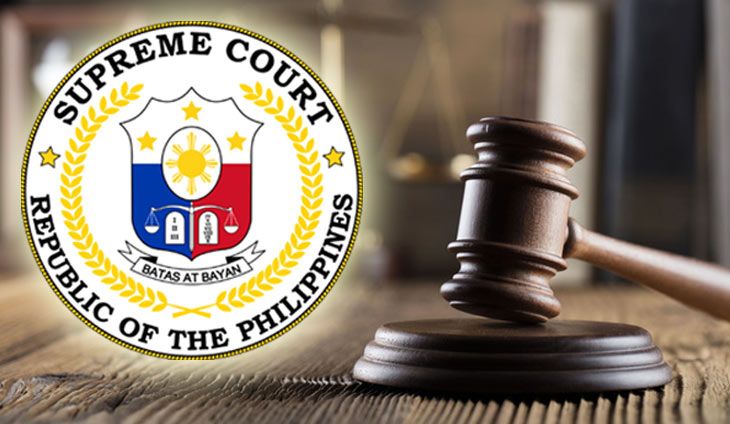SC affirms dismissal of graft, malversation charges vs dismissed Pampanga town mayor
The Supreme Court (SC) has affirmed the dismissal of the graft and malversation of public funds charges filed against dismissed mayor Teddy C. Tumang of Mexico, Pampanga and a private individual for violation of their right to speedy disposition of their cases.

Affirmed was the Sandiganbayan’s June 10, 2024 ruling that dismissed the charges filed by the Office of the Ombudsman (OMB) against Tumang and businessman William B. Colis. The anti-graft court’s ruling was challenged before the SC by the OMB through its Office of Special Prosecutor.
The SC decision, written by Associate Justice Samuel H. Gaerlan and made public last April 2, dismissed the petition filed by the OMB.
Tumang was reelected mayor in 2022 while the cases against him were pending. He was ordered dismissed by the OMB whose ruling was affirmed by the Court of Appeals (CA).
He challenged the CA’s decision before the SC and pleaded for his reinstatement. His plea contained in his appeal is still pending resolution by the SC.
Case records showed that Tumang and Colis were charged for the purchases of base coarse and other construction materials for Mexico town from 2006 to 2007. Tumang as mayor “illegally and invalidly” approved the disbursement vouchers in favor Colis, the proprietor of Buyu Trading and Construction.
On Feb. 7, 2018, Tumang and Colis were asked by the OMB to file their counter-affidavits which they did on Feb. 28, 2018.
On Nov. 20, 2018, the OMB’s graft investigator found probable cause to charge them before the Sandiganbayan. The resolution to file in court was approved by Ombudsman Samuel R. Martires on March 28, 2019.
Tumang and Colis filed their motions for reconsideration on May 2, 2019 and May 6, 2019, respectively. Their motions were denied by the OMB on April 23, 2024 and the corresponding criminal charge sheets were filed before the Sandiganbayan on April 25, 2024.
On May 30, 2024 before their arraignment, Tumang and Colis filed their motions to quash information and/or dismiss the cases. Their motions were granted by the Sandiganbayan.
In dismissing the charges, the Sandiganbayan agreed with Tumang and Colis that their right to speedy disposition of cases was violation by the OMB which conducted the investigation for more than six years from the filing of the complaints before the cases were filed before the anti-graft court.
It did not give credence to the justification of the OMB that the delay was caused by the then Covid-19 pandemic. It said that the pandemic was lifted on July 23, 2023 and yet the OMB resolved Tumang and Colis’ motions for reconsideration only on April 23, 2024 or nine months after the lifting.
Thus, the Sandiganbayan ruled that the delay in the preliminary investigation “impaired and prejudiced” Tumang and Colis’ ability to defend themselves.
In its decision, the SC said: “Undoubtedly, the long period of time while they were waiting for the resolution of the preliminary investigation proceedings constitute actual prejudice suffered by Tumang and Colis.”
The SC also said:
“At this juncture, it must be underscored that the dismissal of the criminal charges against Tumang and Colis is tantamount to an acquittal, and therefore, they can no longer be re-litigated because double jeopardy has already attached.
“Significantly, the proscription against placing an accused in double jeopardy is enshrined in Article III, Section 21, of the 1987 Constitution.
“Accordingly, the petition for certiorari dated Aug. 8, 2024 is dismissed, and the Sandiganbayan First Division’s Resolution dated June 10, 2014 is affirmed.
“Criminal Case Nos. SB-24-CRM-0013 to 0043 against Teddy C. Tumang and Willaim B. Colis are dismissed on the ground that the Office of the Ombudsman violated their right to the speedy disposition of their cases.”
Tumang has reiterated before the SC his plea for a temporary restraining order (TRO) against the implementation of the CA decision which affirmed his dismissal.
Through his lawyers led by Romulo B. Macalintal, Tumang told the SC he should be reinstated on the ground of inordinate delay in the handling of the cases against him and based on the doctrine of condonation.
In a previous pleading, Tumang had told the SC that the OMB had a “flip flopping application of the condonation doctrine.”
Before its abandonment in April 12, 2016, the condonation doctrine “effectively operated as a condonation of past administrative misconduct of local chief executives and prevented his/her removal from office once reelected to the same post.”
Tumang said he was reelected town mayor in 2010 before the abandonment of the doctrine and, thus, he pointed out that the doctrine should apply in his cases that were allegedly committed in 2006 to 2007 when he was mayor.